All about the first day of Shrovetide
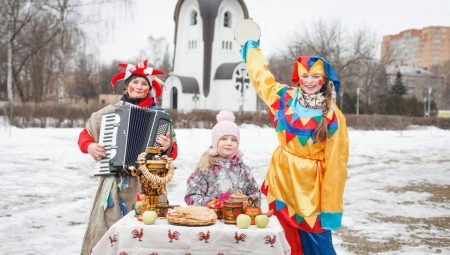
Shrovetide is rightfully considered one of the most beloved holidays among Russian citizens. This celebration, celebrated in ancient Russia, has pagan roots. It is noteworthy that the holiday itself lasts a week, and each of its days has its own, special name. In this article we will talk about Monday - the first day of Maslenitsa, consider the traditions and rituals, as well as folk signs associated with the celebration.
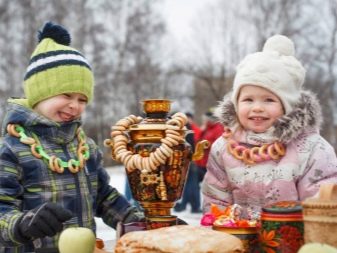
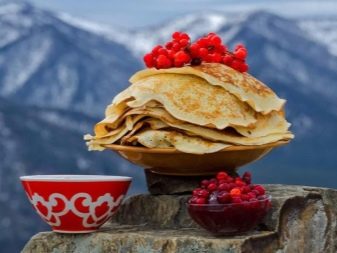
What does it mean?
Maslenitsa is a holiday that was celebrated by the ancient Eastern Slavs. The celebration symbolized the departure of winter and the onset of the season of fertility and life. In Orthodoxy, this holiday is called Cheese Week - the week that precedes Great Lent.
There are no specific numbers on which the celebration is celebrated, they are different in each year. The time of the celebration depends on Easter.
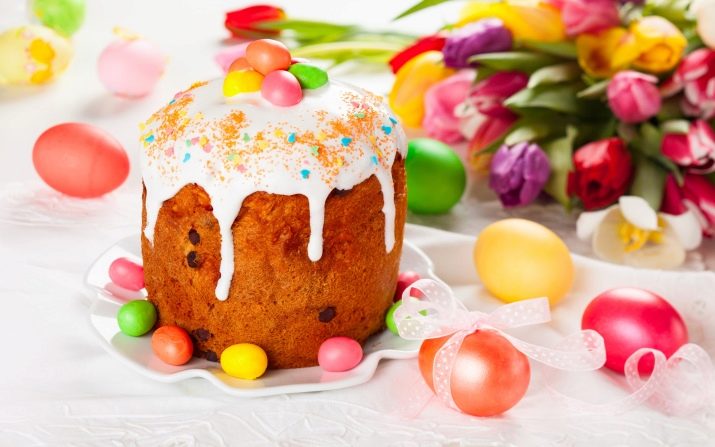
The first day of Shrovetide is always Monday. It is called "Meeting". This day belongs to the so-called Narrow Maslenitsa - a holiday that will last until the end of Wednesday, then Shirokaya will begin. The name "Meeting" was not given to Monday by chance, and there are two reasons for this.
The first is quite obvious: it is this day that becomes the start of the coming stormy week. On Monday, Maslenitsa is met by preparing food for the next 6 days and determining the recipes for the dishes that can be prepared.

The second reason for the name lies in ancient customs: in Russia, on Monday, the daughter-in-law went to her parents in the morning, and in the late afternoon she was met by her husband's parents, taking her back and agreeing on where general meetings and festivities would be held.However, not only matchmakers met: on this day, relatives, friends and acquaintances went to visit each other, bringing symbolic gifts.
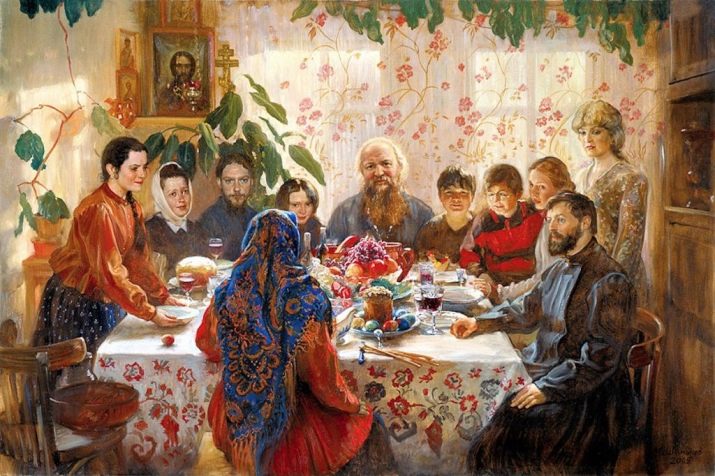
How is it celebrated?
Shrovetide week, starting on Monday, has always followed a certain scenario, and most of the ancient customs and traditions have survived to this day. On Monday, the hostesses, as already noted, buy food for the festive table. If the family adheres to religious principles, then it is very important that there is no meat. But eggs, fish, all kinds of dairy products are allowed in abundance. Partly a large amount of fatty foods gave the name to the holiday - Maslenitsa.
On Monday, women start baking pancakes, and there is always a very large amount.

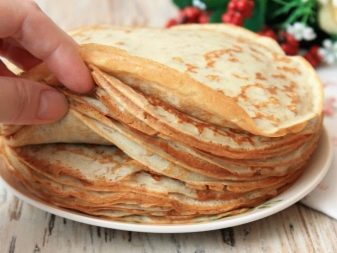
Recipes can be anything: thin, thick, and delicate pancakes. According to custom, the first pancake should be given to poor neighbors or acquaintances who do not have enough funds to celebrate. These people should eat the pancake, remembering the ancestors of those who gave it to them.
This custom came from antiquity, because earlier pancakes were not only symbols of the sun, but also memorial bread. In ancient Russia, they were placed in the attic to treat their ancestors, and were also distributed to the beggars on the streets.
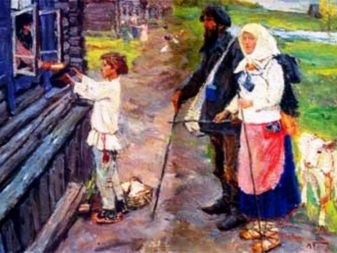
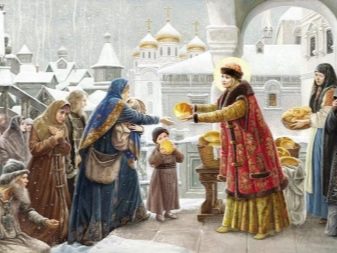
If the hostess wants to amaze the guests with her imagination, then she can prepare not only pancakes, but also a whole pancake doll. This is a very popular tradition. There are no clear indications of the appearance of the doll; it can be made both exclusively from pancakes and with the help of an ordinary children's toy. The resulting doll is beautifully decorated by putting on “clothes” consisting of openwork pancakes. A headdress is placed on the head: a kokoshnik, a hat, a scarf. Naturally, it is also edible. For a more interesting look, the doll can be decorated with multi-colored sprinkles, berries, nuts.
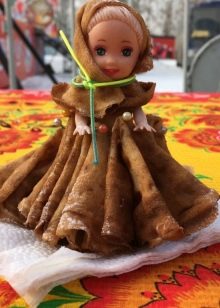
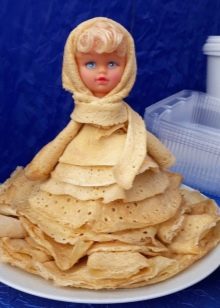
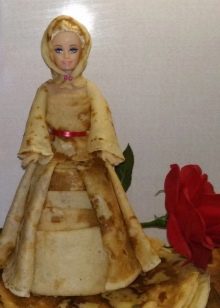
On the first day of Maslenitsa week, you can do more than just baking pancakes. Many people visit their relatives, friends, colleagues. They come just like that, for communication, and also with the aim of helping in the preparation of the festive table. In addition, it is on Monday that a scarecrow is collected, which is to be burned on the last day of the festivities.
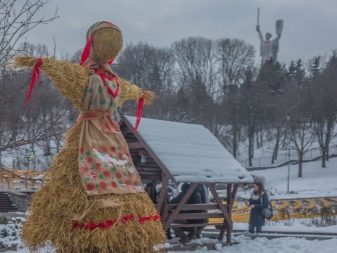
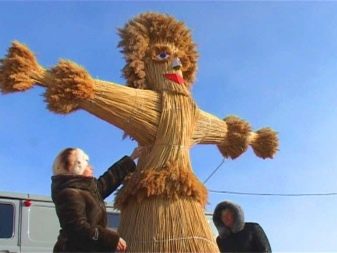
This is a very important part of preparing for the holiday, in which every member of the family had to participate. To make a stuffed animal, twigs, straw, old fabric are used. Previously, the resulting scarecrow was planted on a sled and driven through the streets. This tradition has survived to this day, but most often it is practiced in villages and hamlets.
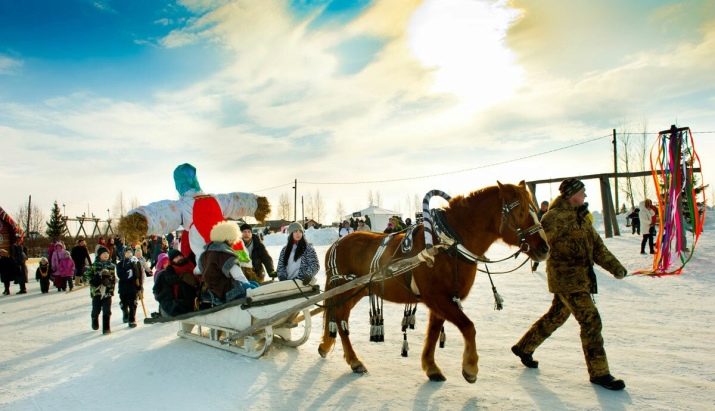
In addition to the traditions already described, on Monday you should start installing the scenery. Previously, these were special booths, in which buffoons performed, fair tents intended for trade. Snowball fights were considered popular, so special snow barricades were installed for them. Today, all these customs also take place, and in the villages you can often see homemade slides, snow towns, large tents with tables for future meals. In addition, on the first day of Shrovetide, children are given the task of collecting brushwood and straw. The collected items are intended for bonfires, which will be lit starting Thursday.
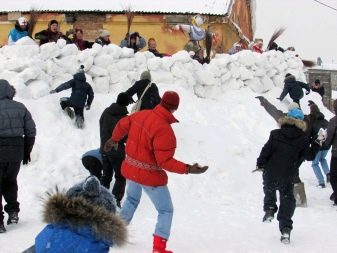
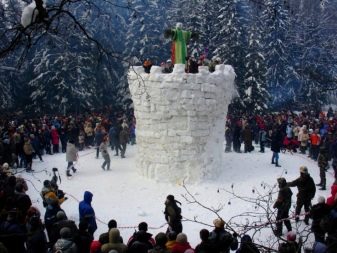
Review will accept
Shrovetide is one of those holidays that are literally "overgrown" with signs. The point here is in its antiquity - after all, Maslenitsa was celebrated in pre-Christian times. For those who really love this celebration and believe in signs, it will be useful to get acquainted with some of the popular beliefs that have survived to this day.
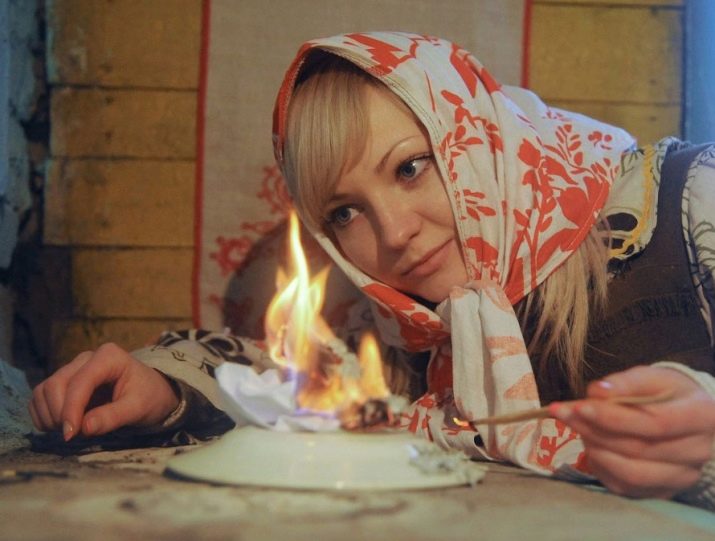
About success and failure
Pancakes are the main treats of the Maslenitsa table. And, of course, it is with them that festive signs begin. The Slavs always determined both successes and troubles by the resulting pancakes. We have already mentioned one of the signs: the first pancake should be given to the poor. Thus, they offer prayers to their ancestors, and they, in turn, protect the family of the donor from illness and misfortune during the next year. But there are other common beliefs:
- housewives should bake as many pancakes as possible: if there are not enough of them, the family will experience financial needs;
- the first rosy and crispy pancake means that the family will be physically healthy;
- an openwork and thin first pancake symbolizes lightness in life, a successful solution to problems, while a thick and ugly one - all sorts of troubles and difficult tasks.
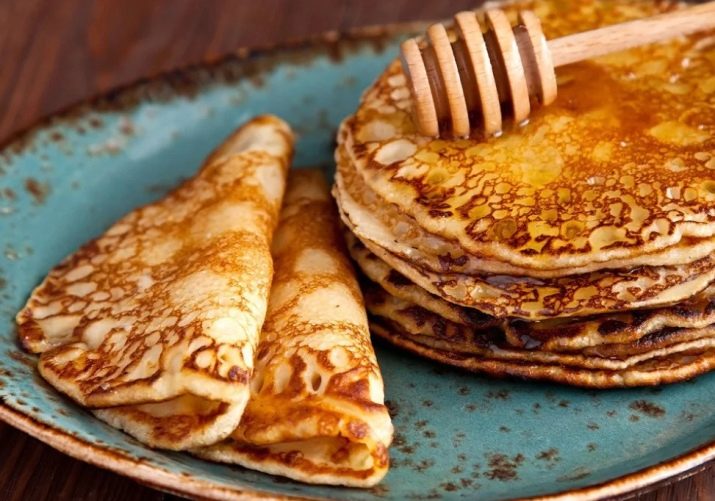
About the weather
Weather signs are considered one of the most accurate. After all, people have learned for centuries to read the signs of nature and interpret them correctly. Signs for Shrovetide are no exception:
- a damp, gloomy Sunday on Monday eve is a guarantee of a large number of mushrooms in the forest in spring;
- frost and blizzard that came right before the holiday means a good warm summer without sweltering heat;
- rain, snow, slush and other unpleasant weather events will pay off in spring: it will be warm and sunny;
- an abundance of icicles during Maslenitsa week is a sign that the year will be successful for many endeavors.
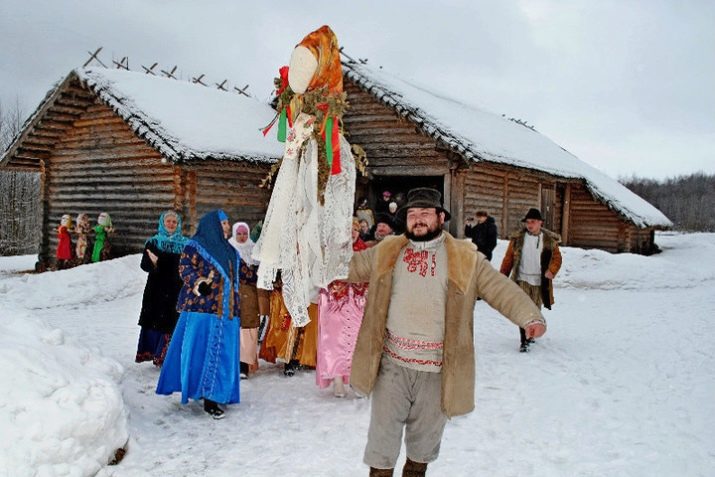
About the wedding
Shrovetide in Ancient Russia was considered an excellent time to find a betrothed. The unions entered into during this period were strong and unshakable, and families lived in prosperity and happiness. In Orthodox churches, there is also such a tradition - to look for your mate on Shrovetide. However, it is customary to play weddings after Lent. Consider some interesting signs for unmarried people:
- the first beautiful pancake the girl got meant that she would soon marry successfully;
- a stuck and burnt pancake is a sign that this year the lady will remain unmarried;
- the number of holes in the pancake - the number of children that will be in the family;
- uneven edges of the product symbolize a groom with negative character traits, smooth - a faithful and loving spouse;
- the name of the first person she meets, to whom the lady will give the pancake made with her own hand, will also be the name of her betrothed.
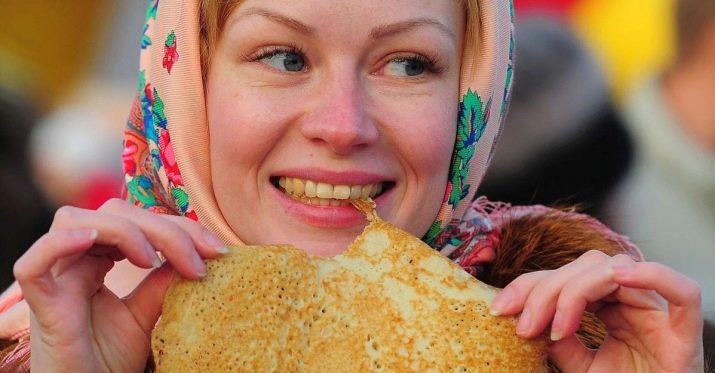
What shouldn't be done?
Those who are going to celebrate the holiday on a grand scale often ask themselves the question of what dates and what can be done. There are not so many prohibitions, and it will be easy to comply with them:
- it is undesirable to eat a lot of meat, and it is even better to remove it altogether, replacing it with cereals, caviar, dairy and cheese products, fish, sweets, nuts;
- you cannot quarrel with loved ones, friends, start scandals, squabbles, because Maslenitsa week is intended primarily for reconciliation and improving relations;
- you should not meet guests in a house where disorder reigns, since the same disorder will accompany you throughout the next year;
- on the first three days of the celebration (Narrow Maslenitsa), you can safely wash, clean the house, iron, but starting from Thursday, you should give yourself up to amusements and celebrations.
"Meeting" is only the beginning of a week full of traditions, but at the same time it is the most difficult day of the celebration. And not only because there are a lot of purchases to be made and to start preparing holiday dishes.
This is also the day when housewives must free the apartment from garbage and unnecessary trash that has accumulated over the years.


A scarecrow made of old things and burned on the last day of Maslenitsa symbolizes goodbye to the old, awakening, striving for a new life.
What does every day of Maslenitsa mean, see the video.









Interesting article.